A∴A∴ Initiation Rituals
The A∴A∴ system was adapted from the Hermetic Order of the Golden Dawn and their second order, the Roseæ Rubeæ et Aureæ Crucis. One of the most significant changes in the A∴A∴ structure is that every member works alone, guided by an instructor who is someone who has attained at least to the grade immediately above the student. “Whosoever knows any member of that Order as such, can never know another, until he too has attained to mastery.” (Liber Causæ).
Although A∴A∴ members are not expected to perform their personal work together, Its system has specific cases of group rituals: the ceremony of the seven holy kings and the initiation rituals of the first two Grades[1].
It’s important to note that the A∴A∴ Grades are attained, not merely granted by a ceremony. A∴A∴ Initiation Rituals are the crown of a particular work, they mark the progress in the journey of the aspirant and provide further insights and keys into his inner work, but they do not grant any kind of special powers. As is said in Liber Causæ:
“In all systems of religion is to be found a system of Initiation, which may be defined as the process by which a man comes to learn that unknown Crown. Though none can communicate either the knowledge or the power to achieve this, which we may call the Great Work, it is yet possible for initiates to guide others.”
The official instructions on the A∴A∴ Grade Rituals are summarized in Liber Graduum Montis Abiegni sub figurâ XIII, hereafter called Liber XIII.
Septem Regnum Sanctorum #

(Certain Probationers are admitted after six months or more to Ritual XXVIII.) — Liber XIII
Ritual XXVIII is Septem Regnum Sanctorum, the ceremony of the “Seven Holy Kings”. It is not an Initiation Ritual per se, but it’s among the three only group ceremonies found in the Order. Although only a few Probationers 0○=0□ are selected for this ritual, this is far from being an honor.
A typescript of Ritual XXVIII can be found at Warburg’s Yorke Collection, Film 1, NS94: The Rituals of A∴A∴ 1.
Throa or Pyramidos #
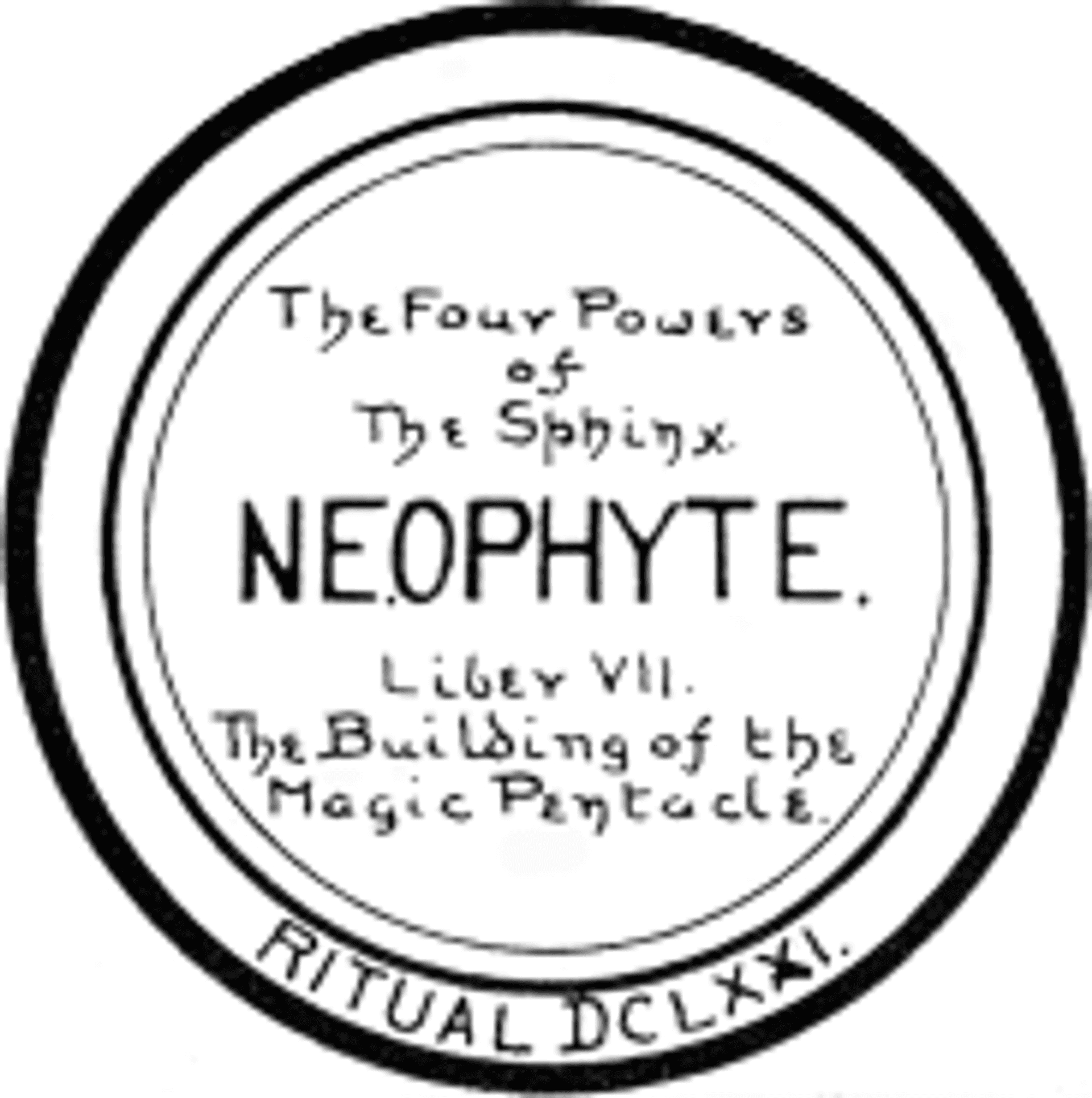
“At the end of the Probation he passes Ritual DCLXXI, which constitutes him a Neophyte.” — Liber XIII
There are two rituals assigned to the number 671 (DCLXXI):
- Liber תרעא (throa, “gate”)
- Liber Pyramidos
Liber Throa is a temple ceremony adapted from the initiation Ritual of the Neophyte 0=0 from the old Hermetic Order of the Golden Dawn, the A∴A∴ predecessor order. Its preparations and performance takes seven days, as is stated in Liber Collegii Sancti:
“When the sun shall next enter the sign under which he hath been received, his initiation may be granted unto him. He shall keep himself free from all other engagements for one whole week from that date.”
Although Liber Throa was devised by Crowley and approved by Jones, the only available evidence of its use we can find is one possible performance to receive Victor Neuburg.
"I had the conveniences for conferring upon Neuburg the degree of neophyte, he having passed brilliantly through his year as a probationer. […] After putting Neuburg through this initiation¹, we repaired to London.
¹ The preparation for this was in some ways trying to the candidate. For instance, he had to sleep naked for seven nights on a litter of gorse."
In 1908, Crowley adapted Liber Throa into a self-initiation ceremony called Liber Pyramidos, performed by him in his attainment recorded in John St. John (See The Equinox, Vol. I, No. 1).
Nowadays there is much debate about what is the correct ceremony to admit A∴A∴ Neophytes: Throa or Pyramidos. As far as the publicly available records tell, Crowley applied neither to his candidates. Thus each A∴A∴ claimant group selects its own admission format.
Crowley also developed a further adaptation of the H.O.G.D. Neophyte formula: the Meditation “MMM”, Πυραμις (Pyramid), in Liber HHH, to be studied and performed as a task of the Grade.
A typescript of Ritual Throa can be found at Syracuse University, Aleister Crowley Papers. A reproduction of the manuscript of Ritual Pyramidos can be found in Commentaries on the Holy Books & Other Papers, published by Weiser in 1998. The original manuscript can be found in the Northwestern University, Colin Dew James Fund.
Cadaveris #
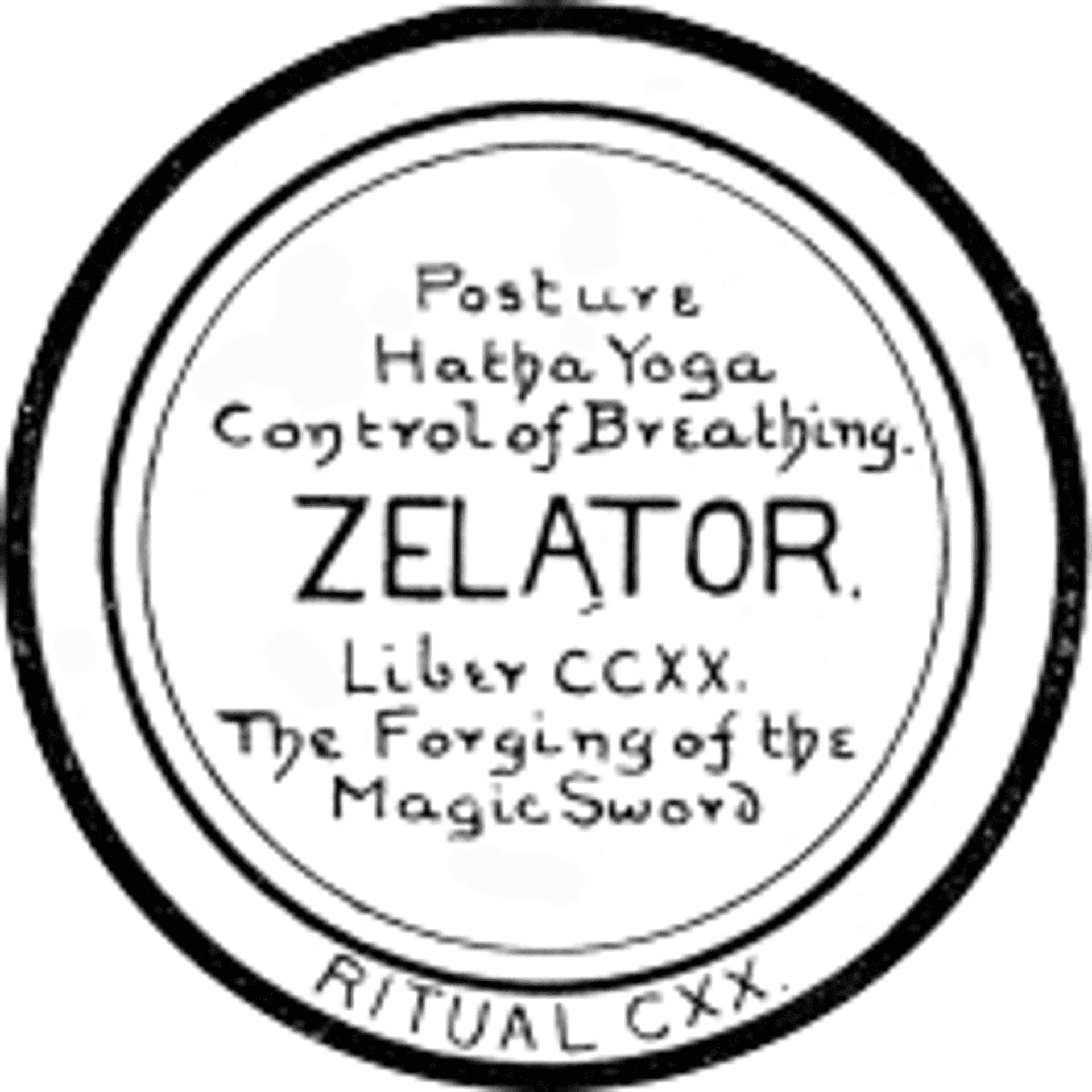
“Finally he passes Ritual CXX, which constitutes him a Zelator.” — Liber XIII
After completing the work of a Neophyte 1○=10□, the aspirant passes Ritual CXX, Liber Cadaveris, “The Ceremony of Passing Through the Tuat” which constitutes him a Zelator 2○=9□.
The ceremony requires four days of preparation:
“When the sun shall next enter the sign 240° to that under which he hath been received, his advancement may be granted unto him. He shall keep himself free from all other engagements for four whole days from that date.”
While Ritual Throa was adapted from the Hermetic Order of the Golden Dawn Ritual of the Neophyte 0=0 (please do not confuse their Neophyte Grade 0=0 with A∴A∴’s Neophyte Grade 1○=10□), Liber Cadaveris was adapted from the Roseæ Rubeæ et Aureæ Crucis Ritual of the Adeptus Minor 5=6.
Crowley also developed a further adaptation of the old Adeptus formula: the Meditation “AAA”, Νϵκρος (Corpse), in Liber HHH, to be studied and performed as a task of the Grade.
A typescript of Ritual CXX can be found at Warburg’s Yorke Collection, Film 1, NS94: The Rituals of A∴A∴ 2.
Grades Conferred by Authority #
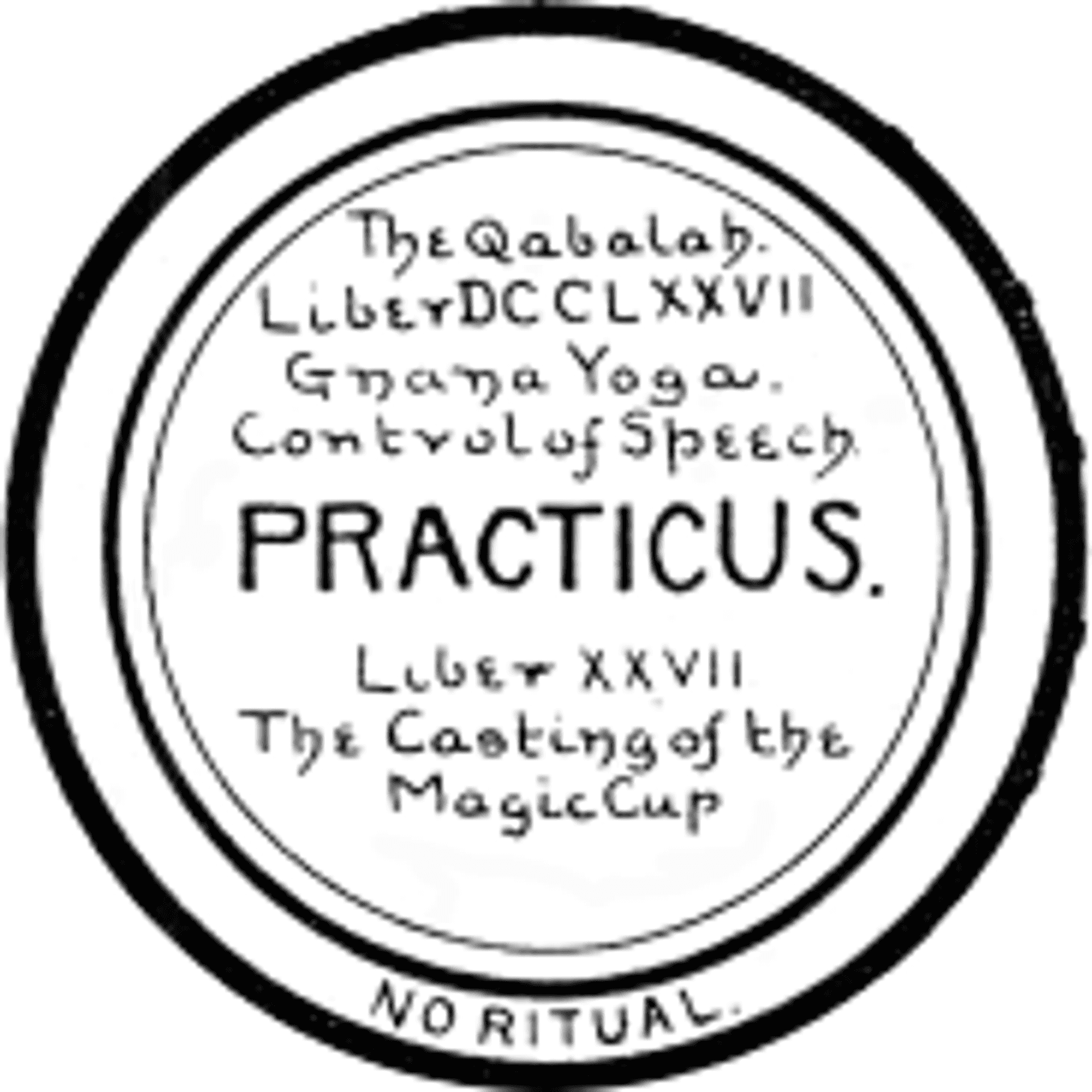
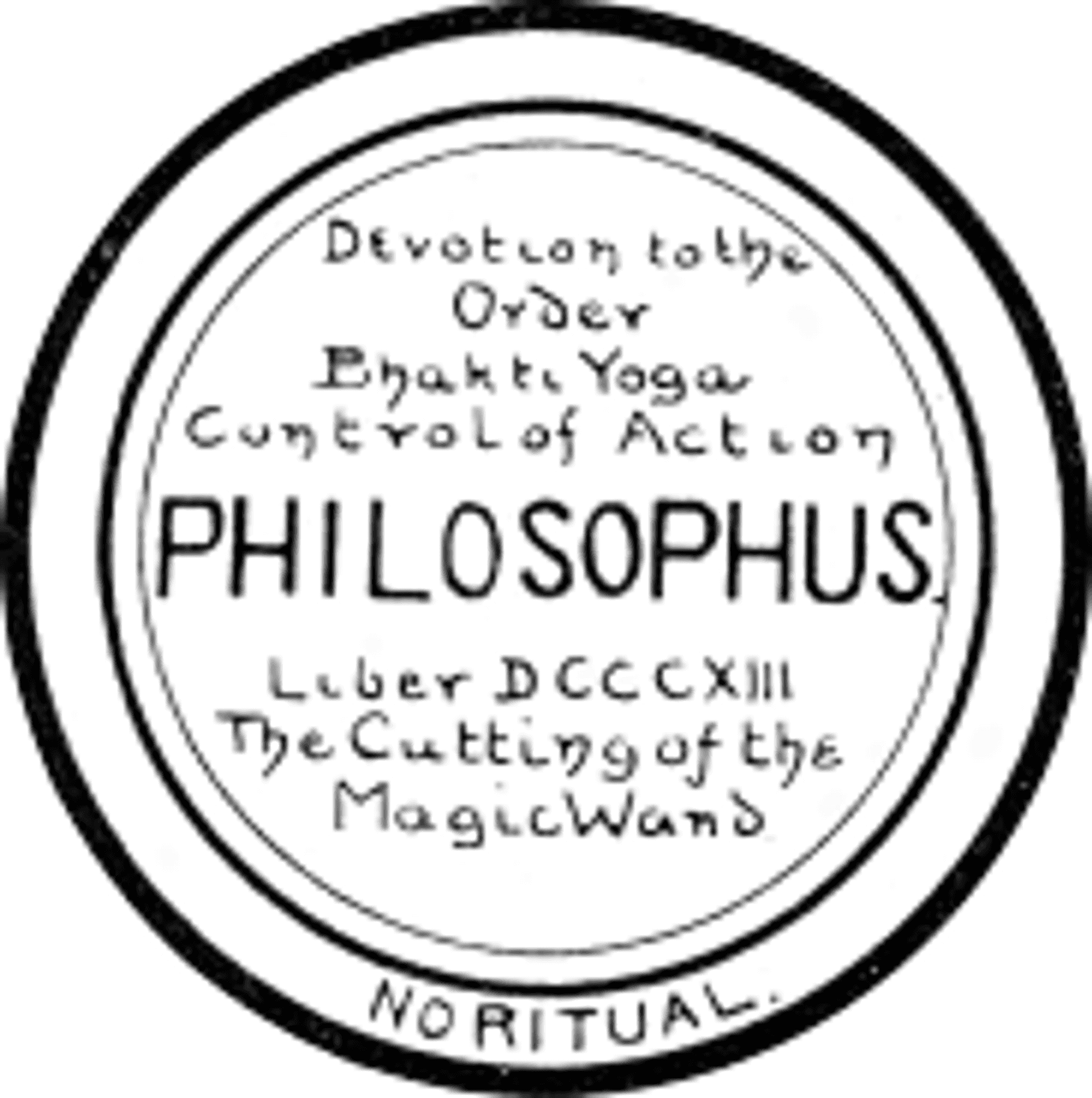
Crowley adapted the ritual of the old 0=0 grade to receive Neophytes 1○=10□, and he adapted the old ritual of the 5=6 grade to receive Zelators 2○=9□.
But what about the intermediary rituals from the old 1=10 to the 4=7 and the Portal? According to his Confessions, Chapter 20, Crowley only valued the old 0=0 and 5=6 ceremonies:
“The rituals have been printed in The Equinox, vol. I, Nos. II and III. There is no question that those of neophyte and adept are the genuine rituals of initiation, for they contain the true formulae. The proof is that they can be made to work by those who understand and know how to apply them.”
Thus, when he structured the Grades of A∴A∴ with Jones, they omitted the ceremonies for the intermediary Grades:
"No ritual admits to the grade of Practicus, which is conferred by authority when the task of the Zelator is accomplished. […]
No ritual admits to the grade of Philosophus, which is conferred by authority when the Task of the Practicus is accomplished. […]
Finally, the Title of Dominus Liminis is conferred upon him." — Liber XIII
It’s also important to note that most of the work of the entire outer college of the Hermetic Order of the Golden Dawn and part of the beginning of the Roseæ Rubeæ et Aureæ Crucis have been compressed into the A∴A∴ Neophyte 1○=10□ Grade. For example, the astral working and actual ceremonial magic wouldn’t happen until one became an Adept of the second order.
The Invocation of the Holy Guardian Angel #
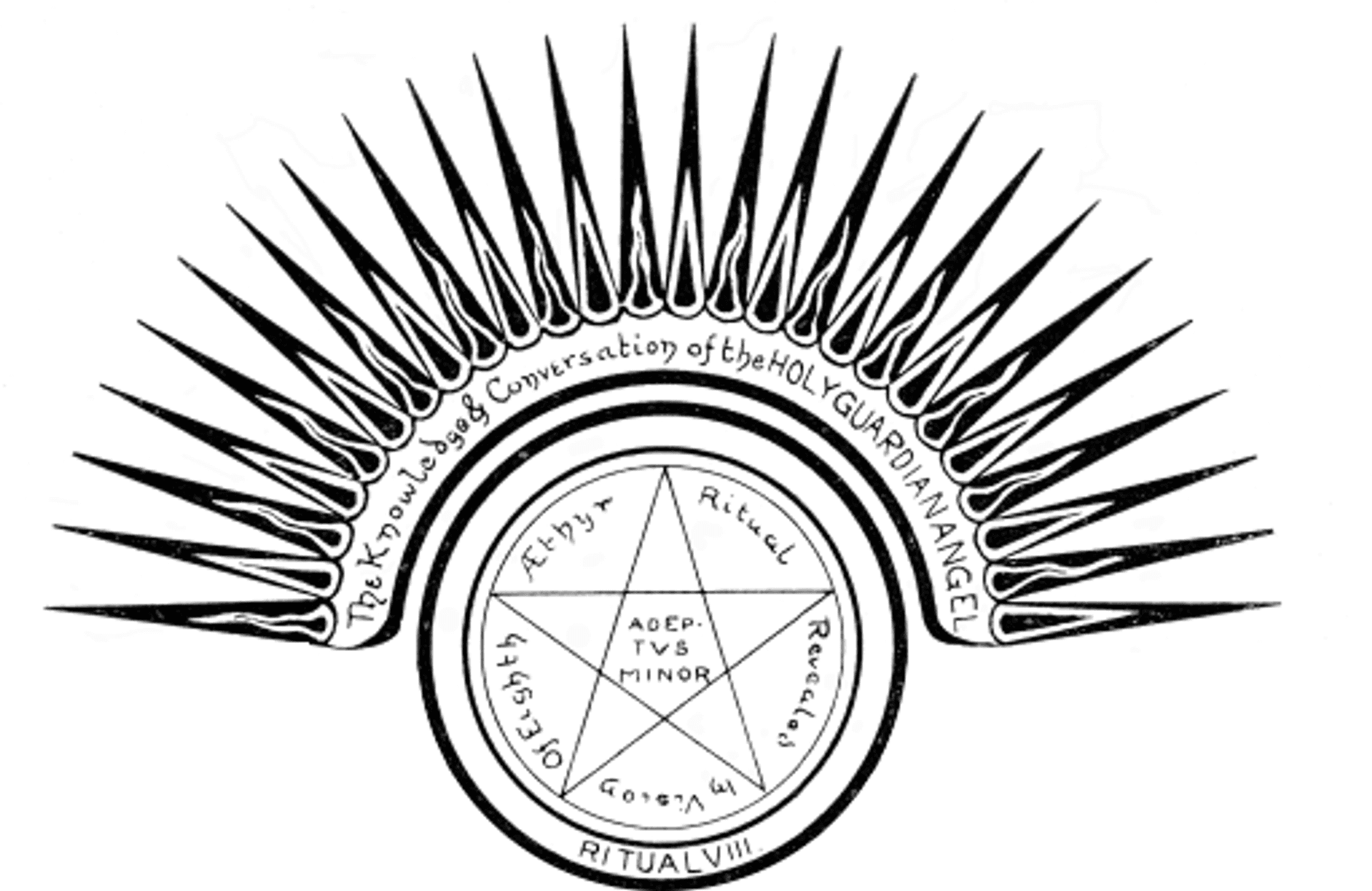
“At last, Ritual VIII admits him to the grade of Adeptus Minor.” — Liber XIII
After completing the work of a Dominus Liminis, the aspirant is entitled an Adeptus Minor 5○=6□ (without), and works alone through Ritual VIII, the 8th Æthyr from The Vision and the Voice, which being judged successful, will mark one’s advancement to Adeptus Minor 5○=6□ (within):
"And thus shall he do who will attain to the mystery of the knowledge and conversation of his Holy Guardian Angel: […]
And his Holy Guardian Angel shall appear unto him, yea, his Holy Guardian Angel shall appear unto him, so that he shall be wrapt away into the Mystery of Holiness. […]
And more than this it is not necessary to say, for his Angel shall have entreated him kindly, and showed him in what manner he may be most perfectly involved. And unto him that hath this Master there is nothing else that he needeth, so long as he continues in the knowledge and conversation of the Angel, so that he shall come at last into the City of the Pyramids."
The Ceremony of the Feast of the Equinox may also be considered a group ritual in the case of the officer obtaining a new Word of the Equinox. For the Neophytes who receive the Word, the Feast of the Equinox is performed alone, and that’s why it has not been included here. ↩︎
Thanks for reading
Since you've made it this far, sharing this article on your favorite social media network would be highly appreciated 💖! For feedback, please write to alanwillms at gmail dot com.